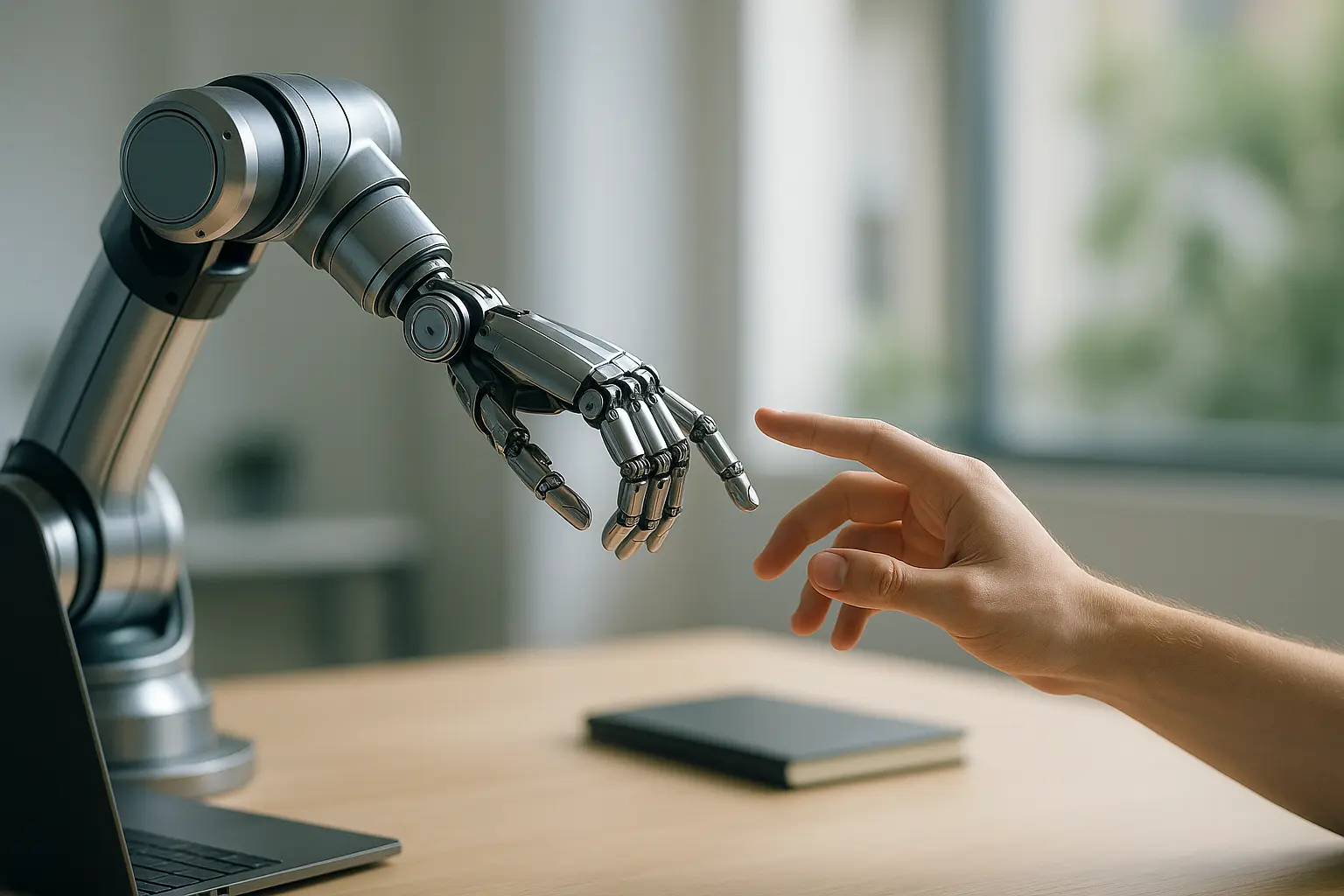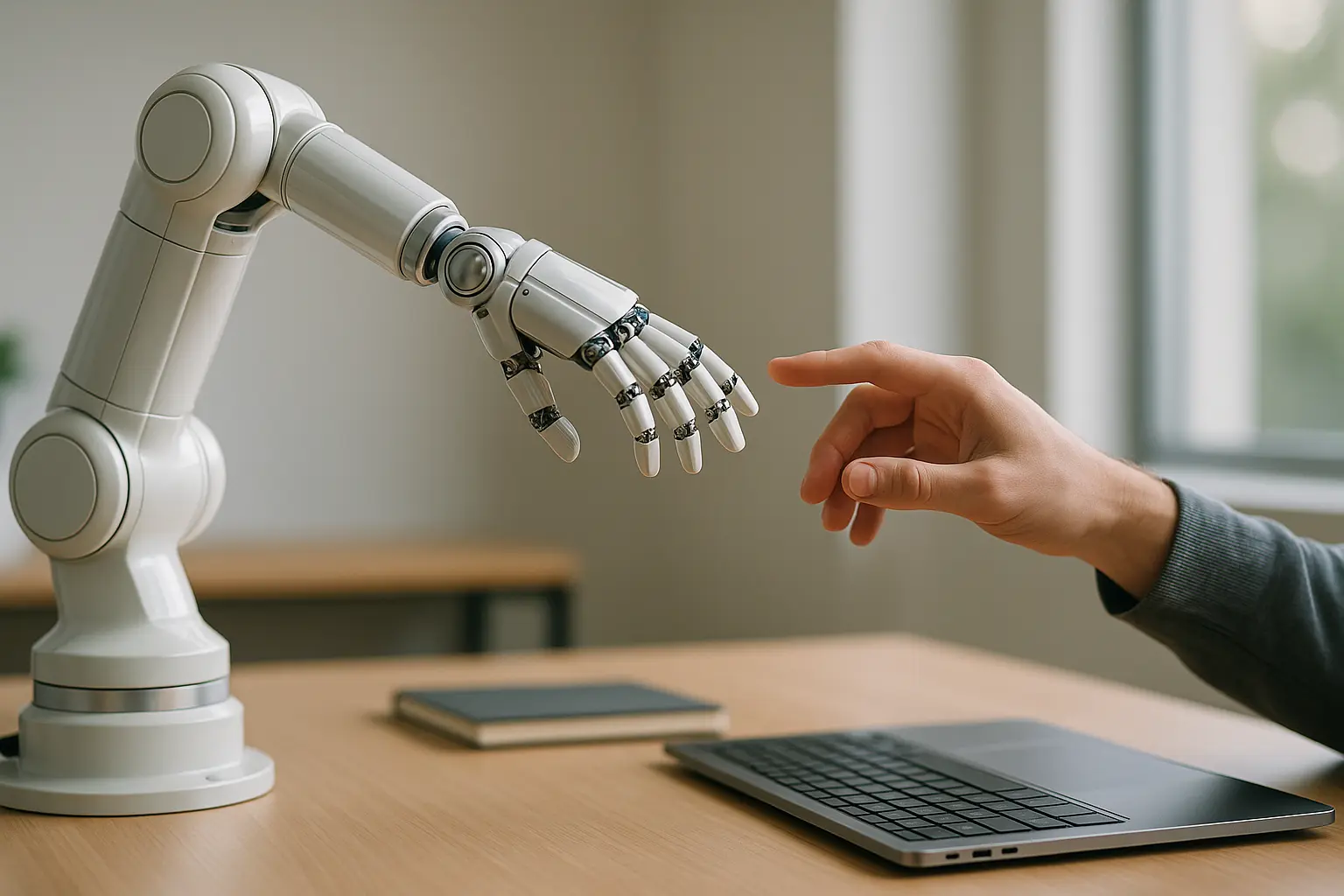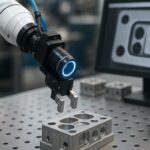In our ever-evolving world, the dynamic interplay between humans and machines continues to shape the landscape of modern society. As we stand at the precipice of advanced technology and artificial intelligence, the question arises: what do machines do better, and where do humans still hold their ground? This exploration of capabilities sparks conversations about the future roles of humans and their counterparts. Automation is revolutionizing work as we once knew it, prompting us to reconsider which tasks still require our unique touch and intelligence. As people seek to understand the implications, they must also embrace the opportunities this technological era presents. Let us dive into the heart of this modern conundrum: What still needs us?
Redefining Work in the Age of Machines
The dawn of the machine era has redefined how we approach work and jobs that once demanded human labor. Automation has seamlessly integrated into various industries, optimizing efficiency and productivity. From manufacturing to data analysis, machines have taken over numerous repetitive tasks that previously occupied our time.
Despite this automation trend, there are areas where human involvement remains irreplaceable. Humans possess a unique intelligence that transcends raw data-processing capabilities. While machines excel at executing tasks with precision and speed, they lack the inherent creativity and emotional depth that humans bring to the table.
The ability to empathize, make ethical decisions, and think critically are qualities that define us. In fields like art, medicine, and counseling, the human touch is invaluable. In these sectors, it’s not just about delivering a service; it’s about understanding and connecting with others on a profound level. As we continue to explore the future of work, these qualities will ensure that humans remain integral to fulfilling roles where emotional intelligence and empathy are key.
Moreover, as automation evolves, there’s a growing need for skilled professionals who can design, maintain, and improve these systems. The symbiosis between humans and machines will drive innovation and create new opportunities for those willing to adapt. People who embrace technology as an ally, rather than a rival, will thrive in this new landscape, ensuring that we remain at the forefront of better solutions.
The Power of Human Creativity and Innovation
In a world where machines are taking over many mundane tasks, our capacity for creativity and innovation stands as a testament to the irreplaceable value of the human spirit. Creative thinking is not just a skill; it is a human trait that allows us to transcend the limitations of automation and see possibilities where none existed before.
When it comes to innovation, people excel where machines fall short. While artificial intelligence can analyze vast amounts of data and identify patterns, it lacks the ability to imagine new concepts or solutions. This is where we come in. As inventive thinkers, we have the power to envision future scenarios and devise strategies that push boundaries. Our innate curiosity drives us to question, explore, and disrupt, leading to breakthroughs that machines simply cannot replicate.
Moreover, creativity extends beyond the arts. In fields like technology, business, and science, human ingenuity fuels advancements that redefine what is possible. Consider the role of humans in developing cutting-edge technologies like virtual reality, renewable energy, and biotechnology. These innovations result from a harmonious blend of data insights and creative problem-solving that only we can achieve.
As technology continues to evolve, the demand for creative professionals will grow. Industries ranging from entertainment to education will rely on the unique ability of humans to create experiences that resonate on a personal level. Our capacity to tell stories, design compelling visuals, and evoke emotions ensures that we remain essential contributors to a vibrant and dynamic society.

Ethical Decision-Making and Moral Judgment
While machines can perform complex calculations and make data-driven decisions, they lack the capacity for human moral judgment. This aspect of intelligence goes beyond computational ability, touching on values that define us as a species. In situations requiring ethical consideration, people play a crucial role in determining the course of action that aligns with societal norms and human welfare.
In sectors like healthcare, law, and governance, the importance of ethical decision-making cannot be overstated. Humans bring a level of empathy and moral reasoning that machines simply cannot replicate. Consider the delicate decisions faced by doctors, who must weigh patient care against treatment risks. Or judges who interpret laws within the context of human life. These are decisions that demand more than mere data analysis.
Technology may assist in gathering and organizing data, but when it comes to understanding the intricacies of human emotions and societal impact, people remain at the helm. This is particularly true in times of crisis, where unforeseen circumstances require swift moral judgment. Humans have the ability to assess situations with a nuanced perspective, ensuring that actions taken are in the best interest of humanity as a whole.
As the role of automation expands, it’s vital that we recognize and uphold the importance of ethical standards. Collaborative systems where machines support human decision-makers will be crucial in navigating the complexities of the future. By combining technological precision with human values, we ensure that progress is both innovative and benevolent.
The Human Need for Connection and Empathy
With the rise of technology and digital interaction, the significance of genuine human connection has only grown stronger. While machines can simulate human interaction, they cannot replicate the authentic connections that people form on a personal level. As social creatures, our need for empathy, understanding, and companionship remains a cornerstone of human existence.
In an increasingly digital age, the demand for professions centered around human interaction is evident. Jobs in counseling, social work, and customer service rely heavily on our ability to empathize and communicate. These roles require more than scripted responses; they necessitate an understanding of emotions and the ability to respond with compassion.
Moreover, within communities, the role of humans in fostering a sense of belonging and support is invaluable. From teachers inspiring students to mentors guiding careers, our interactions profoundly shape the lives of others. Humans offer a depth of connection that machines cannot, reinforcing the importance of our presence in a world where digital communication often prevails.
As we look toward the future, the preservation of human connection becomes paramount. Technology should be an enabler of relationships, not a replacement. We must harness it to enhance our interactions, ensuring that empathy and understanding remain at the forefront of our societal evolution. In doing so, we maintain our humanity in an era of rapid advancement.
As we navigate the intricacies of an increasingly automated world, it becomes clear that humans hold an advantage that machines cannot replicate. Our creativity, ethical reasoning, and emotional intelligence define our contribution to society, ensuring that we remain indispensable. While technology and automation continue to transform the landscape, our unique abilities propel us forward, shaping a better future.
The symbiosis between humans and machines is not about competition but collaboration. By embracing our differences and leveraging our strengths, we forge a path that combines the best of both worlds. As we look ahead, let us celebrate our role in this modern evolution, confident in our capacity to adapt and thrive in a world where data and intelligence work hand in hand with humanity.
FAQ
What are some tasks where humans outperform machines?
Humans excel in areas requiring emotional intelligence, creativity, and complex problem-solving. While machines can process data and execute tasks based on patterns, they lack the nuanced understanding of human emotions, cultural context, and moral judgment that humans provide.
In what ways do machines complement human abilities?
Machines can handle repetitive, data-heavy tasks efficiently, freeing humans to focus on strategic and innovative activities. For example, data analysis and number crunching can be swiftly managed by machines, allowing humans to interpret results and make informed decisions.
Why is human oversight crucial in machine-driven processes?
Human oversight ensures ethical considerations, accountability, and context-aware decision-making in machine-driven processes. While machines can operate based on algorithms, they can’t independently account for ethical dilemmas or unforeseen circumstances.
How do humans and machines collaborate in creative fields?
In creative fields, machines can assist with generating ideas or enhancing efficiency, but humans drive the artistic vision and emotional depth. For example, AI tools can suggest melodies or design patterns, but artists and creators refine these inputs into unique, meaningful works.
What are the limitations of machine learning without human input?
Machine learning relies heavily on the data it’s fed and can perpetuate biases or make errors without human intervention. Human input is essential in curating data, refining algorithms, and ensuring the outcomes align with ethical standards and societal values.



